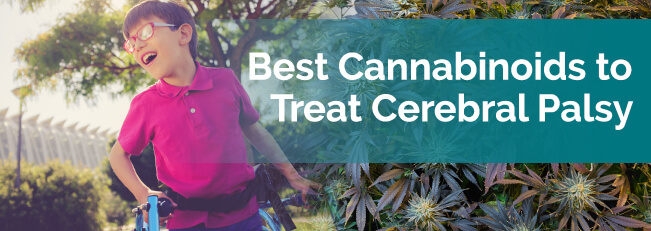
Although not much research has been done on medical marijuana’s effect on cerebral palsy, the anecdotal evidence is overwhelming. Patients have found relief from this all-natural medication. In many cases, it’s proven more helpful than typical pharmaceutical options. There’s also the bonus of its relative safety when compared to sometimes harmful prescription opioids.
But what makes medical marijuana an effective treatment for cerebral palsy? The answer lies in its chemical makeup. Cannabis is comprised of at least 113 active cannabinoids, which are the compounds that produce the effects associated with marijuana. If you’re unsure which cannabinoids will best treat your CP symptoms, read on to find out more.
Cerebral palsy is a disorder that develops in the womb, at birth or in early childhood. It’s caused by either brain injury or a malformation of the brain. Individuals diagnosed with CP show a range of symptoms, and each person varies in the types and severity of these. However, some of the most common symptoms include:
Cannabinoids are the chemical compounds produced naturally by the cannabis plant. These have documented medical value and are beginning to bring a better quality of life to many patients struggling with debilitating conditions.
Cannabinoids work by imitating compounds naturally found in our bodies called endocannabinoids. These small molecules are components in a greater biological system within us called the human endocannabinoid system. The system plays a vital role in maintaining our body’s homeostasis. If our endocannabinoid system is out of whack, physical complications and unpleasant symptoms can occur.
The cannabinoids in medical marijuana bind to receptors in the brain or the body. Depending on what kind of cannabis product you consume, you can bring relief to these receptors, thus lessening severe symptoms caused by many disorders.
Although some studies show there are 113 of these compounds, only a few play an impactful role in medical marijuana treatments. The most common of these are:
Many manufacturers and growers of cannabis are now producing strains that each favor a particular cannabinoid. This allows patients to find products that target their specific condition. Here are a few symptoms you might be experiencing and which cannabinoids have been shown to treat them effectively:
For more information about how cannabis can be used to treat Cerebral Palsy, check out our resources: